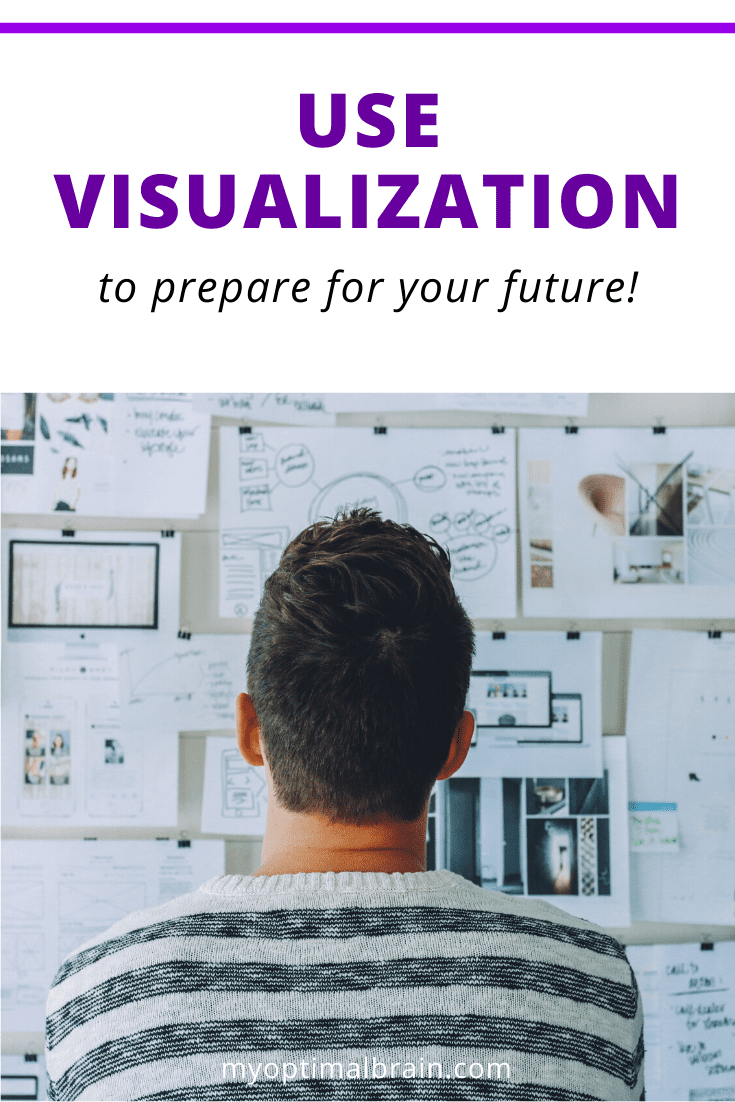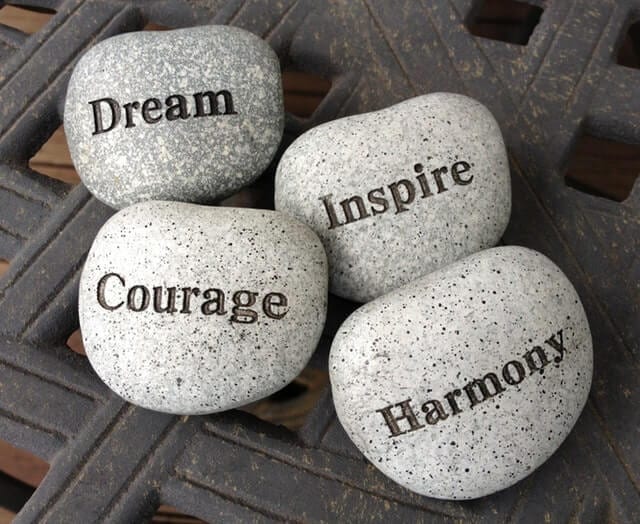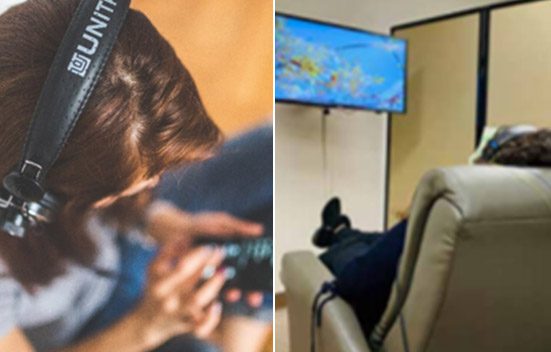Memory is a function of the brain that has been long studied. And yet, there is a lot to be discovered, especially when it comes to visualization!
Francis Eustache, neuropsychologist at the French institute INSERM explained that studies using brain imagery have shown that the same brain area is activated whether people recall past memories or project themselves into the future – for example, to plan their week-end.[1] The idea that a memory is always associated to the past is therefore not accurate. It can be associated with the present moment as in the management of the on-going activity, and the future. Without our memory function we could not create expectations.[1] As a result of this function, you can effectively use visualization to prepare for your future!

Does this mean we can use this ability to prepare the future to our advantage? Absolutely!
Before we dive into how visualization can help us be succesful, let’s first look at how a memory is created. You may have noticed that a past memory is often more vivid when an emotion is attached to the scene – whether the emotion is good or bad.
Let’s look closely at how a memory is anchored in the brain. Interestingly, a bad memory is more easily stored than a happy one. We tend to recall bad memories more often than we would like. That is because when we experience a bad situation, emotions run high. This forces the brain to be fully alert and triggers our survival instinct. All our senses are wide open. Adrenaline is rushing. Stress is high. This intensity of emotion makes the brain store the information very quickly.
Imagine a conversation where two people get angry at each other. In this situation, one person may have perceived that anger is the “safest” response in this scenario. Someone else could decide to not say a word – in this case, the brain triggers a freeze mode as the “safest” response to the scenario. Such outcomes are stored in the brain as survival instincts. The role of the brain is to protect, and it will use a behavior that it deems “safe” whether it is appropriate or inappropriate. You can see the important role that emotions have in the process of creating memories. Moreover, researchers have shown that emotional memories are preferentially enhanced during sleep. Everything that you think is important is better learned during your sleep.[2]
That is where the process of visualization can play an important role in helping the brain create new behaviors.
Visualization is the ability to project yourself into the future and imagine a desired outcome when facing a specific situation. Let’s take for example Elaine, who would like to be able to communicate more easily with her son who is a teenager. In a quiet, calm and peaceful environment, she can visualize a conversation with him. During this visualization she will use her five senses and emotions that she would like to enhance. For example, she can picture herself talking quietly, gently and peacefully with her son while looking him in the eyes. She is listening to him with an open-mind. She feels calm, no stress and she imagines the desired outcome of this conversation.
In other words, a visualization is a short meditation to prepare the brain and show it another behavior rather than the usual survival instinct. Repeating this exercise will enable the brain to remember the feelings and appropriate behavior. That is where the memory of the future comes into play. To enhance this visualization, you can practice this exercise before going to sleep and thus enhance what is important to you.
We Can Help
We have noticed that visualization can work very effectively during a session of advanced InnerOptimal/Neurofeedback® neurofeedback. Our clients practice visualization during the last 7-10 minutes of their session while their memory function is being enhanced. Contact us today to learn how visualization can help you plan for future success.
[1] Translated from French. Interview by S. Gherardi, Journal Le Un, Le Genie du Cerveau, N°164, 2017-07-19, p.5
[2] Robert Stickgold, Sleep on it!, Scientific American, Vol.26, 3, p.59
By Amelie Catheline





